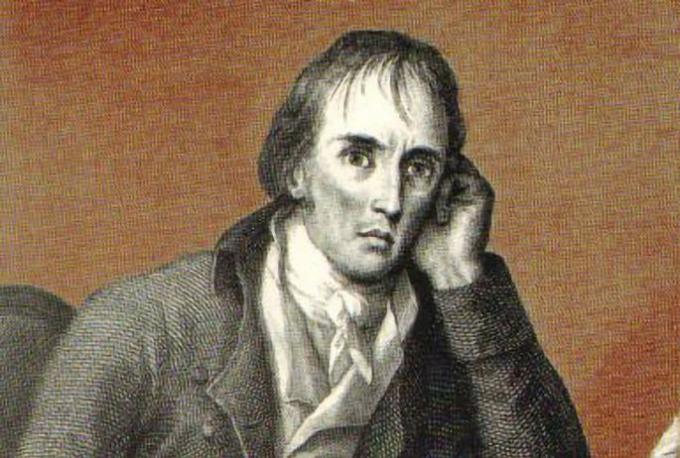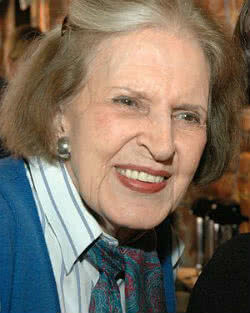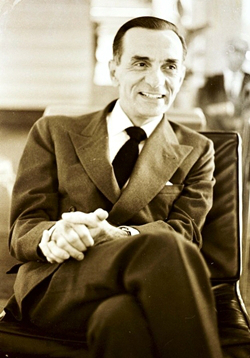Bocage he was a Portuguese poet of the neoclassical period (18th century or arcadianism) and one of the forerunners of Romanticism in Portugal.
He was considered one of the most important Portuguese poets and sonnetists of the 18th century. Together with the poets Camões and Antero de Quental, Bocage forms the trio of the greatest lyrical sonnetists in Portuguese literature.
Biography of Bocage

Manuel Maria de Barbosa l'Hedois du Bocage was born in Setúbal, on 15 September 1765. Son of the lawyer José Luís Soares de Barbosa and Mariana Joaquina Xavier l'Hedois Lustoff du Bocage, both descendants of the Normandy region.
Bocage was one of the couple's six children and, as expected, had a good education, studying languages (French, Latin, Italian) and literature.
The poet had a restless, adventurous and controversial behavior, and later came to have a bohemian life.
As a child he went through difficult times, as his father was arrested when he was just six years old, and his mother lost his mother at the age of 10 years.
He was part of the Portuguese army and navy. He traveled to Brazil, Africa, China and India, and held the post of naval guard. In 1790, he returned to Lisbon, starting his literary life, to which he dedicated himself for the rest of his days.
In that same year, he participated in the Arcadias, called the literary associations of the time, to which he was invited, and joined the "Academia das Belas Letras", or "Nova Arcadia".
He was one of the most influential Portuguese poets, from which he adopts the pseudonym Elmano Sadino. He was persecuted and imprisoned by the Inquisition, in a way that satirized the Church and the clerical power. At this moment, his work reflects pre-romantic tendencies.
He died in Lisbon, on December 21, 1805, victim of an aneurysm. In the house where he rented and lived with his sister, in Bairro Alto, Lisbon, located at Travessa André Valente, no. 25, he has a tombstone dedicated to the poet: “On December 21, 1805, the poet Manuel Maria de Barbosa l'Hedois du Bocage died in this house.”.
Main Bocage Works
The poet himself said: “Tear up my verses. believe in eternity”. Bocage's work is full of lyricism, eroticism, individualism and satire, with a neoclassical language, that is, clear, abbreviated, correct and pompous. The most explored themes are: bucolic, pastoral and classical mythology.
In addition, he carried out translations and wrote erotic, burlesque, satirical poetry and other literary genres, such as odes, songs, idylls, epistles, fables. Some of his works:
- Death of D. Ignez de Castro
- The Triumph of Religion
- The Frightful Illusion
- The Laureate Virtue
- To the Most Pure Conception of Our Lady
- Elegy
- Invitation to Marília
- Bocage improvisations
- Maritime Idylls
- Elmano's Love Sorrows
- Pastor Elmano's Complaints Against Pastora Urselina's Falsehood
Bocage Poems
Below is the poem “A Rosa” and the sonnets “Autoretrato” and “Ó Beautiful!”.
The Rose
You, flower of Venus,
rosy pink,
Leda, fragrant,
Pure, mimosa,you who are ashamed
The other flowers,
you have less grace
That my loves.both daytime
blazing sun
Give in to the night
shifting moon,As for Marília
See in purity
you who are the treat
From nature.the noisy,
Candide Love
put on her face
More vivid color;you have treble
cruel thorns,
she smooth
Gentle caresses;You do not understand
tender wishes,
In vain Favonio
Give you a thousand kisses.Marília beautiful
sit, breathe,
my sweet verses
Listen, and sigh.The mother of flowers,
The spring,
get vain
When she begets you;But Marilia
in the laugh magician
brings the delights
From Paradise.love to say
which is more beautiful,
which is purer,
If you, or she;Say Venus...
She comes here...
There! I was wrong,
Which is my good.
self portrait
Thin, blue-eyed, brown-faced,
Well served by feet, half in height,
Sad in the face, the same as in the figure,
Nose high in the middle, not small;Unable to watch on one plot,
More prone to fury than tenderness;
Drinking in the snowy hands, from a dark cup,
Of infernal zeals lethal poison;Incenser devotee of a thousand deities
(I mean, a thousand girls) in a single moment,
And only at the altar, loving the friars,Here is Bocage, in whom he shines some talent;
These truths came out of him,
On a day when he found himself more relaxed.
O Beauty!
Lice creates more golden hair;
White brings out the most showy eye;
Through the nose of the most beautiful face
The monco sees himself hanging:Through the mouth of the most flushed face
Breath comes out, sometimes quite disgusting;
The snowiest hand is always forced;
That its owner's ass has touched:The best natura lives next to him,
That lying down in the month can fat,
Féitdo piss launches at any time:Shit the whitest ass pure shit;
Because if this is what you're dating so much,
I piss on you, I shit on you, O beauty!
Bocage Phrases
- “Men are not evil by nature; attractive interest falsifies them, Utility to evil, and instinct to good Guides these fragile beings.”
- “Sad who loves, blind who trusts.”
- “In passions, reason forsakes us.”
- “Loves come and go, but true love never leaves the heart.”
- “Dying is little, it's easy; but to have life delirious with love, without burning fruit, is to suffer a thousand deaths, a thousand hells.”
- “How many colors is Fado tinted! Man does not always laugh, he does not always cry, Evil with good, good with evil is tempered.”
Bocage Curiosities
- Bocage was a second cousin of the Portuguese zoologist José Vicente Barbosa du Bocage (1823-1907).
- In honor of the Portuguese sonnetist, the 15th of September, the date of his birth, is a holiday in the birthplace of Bocage, Setúbal.



